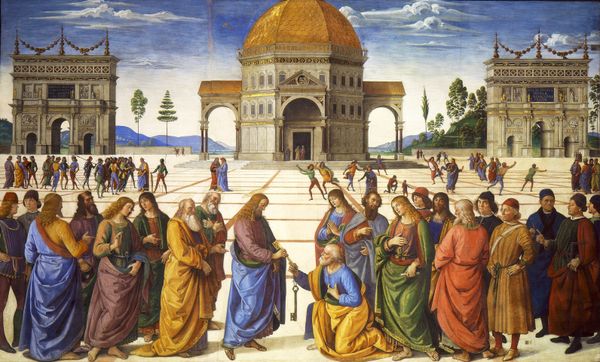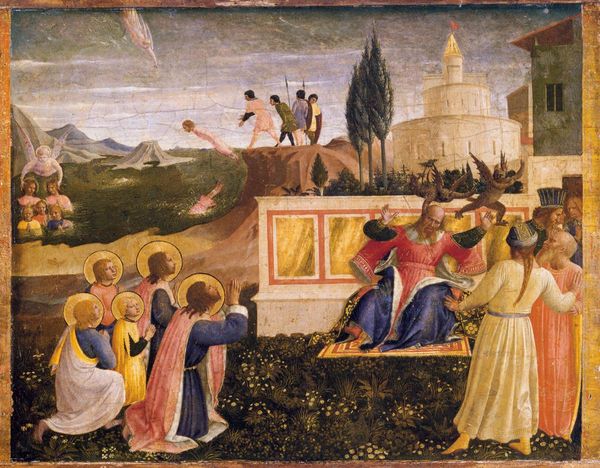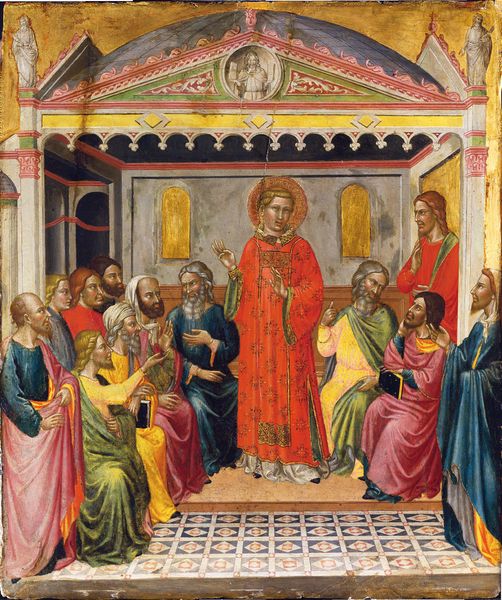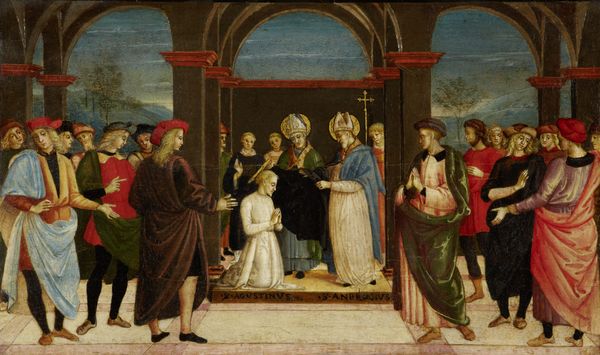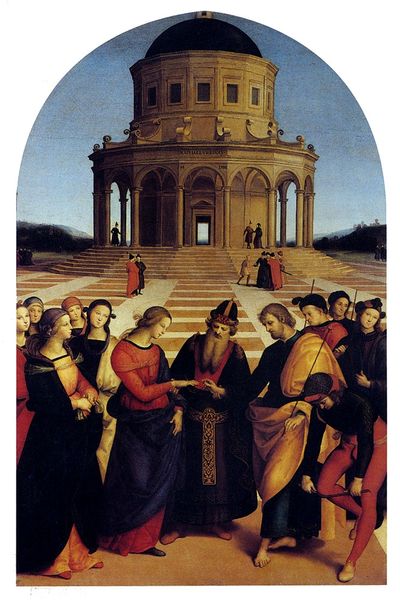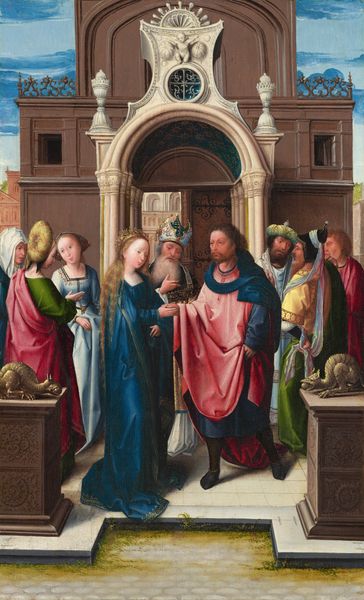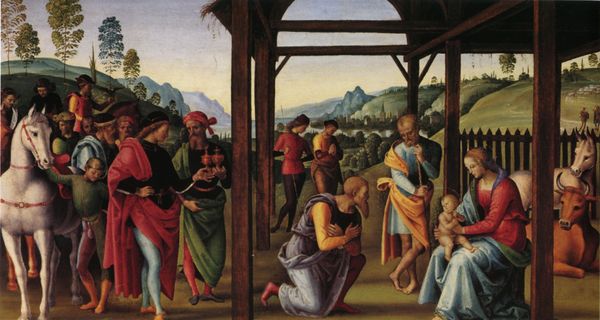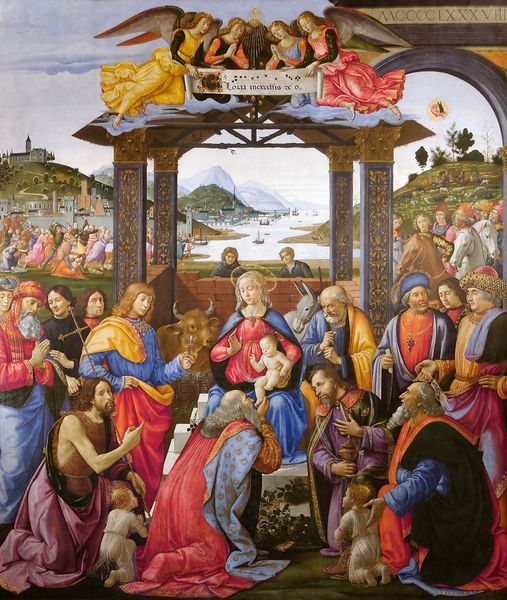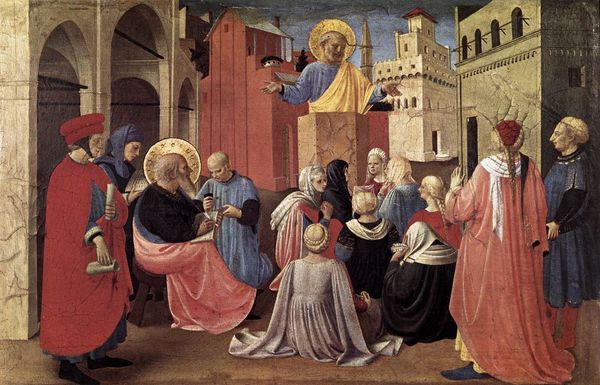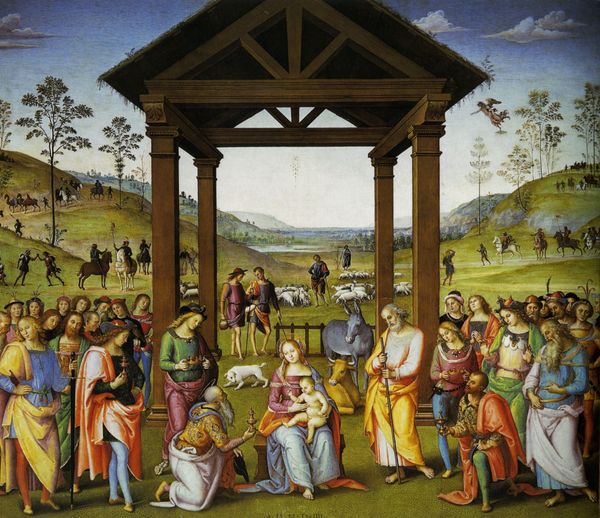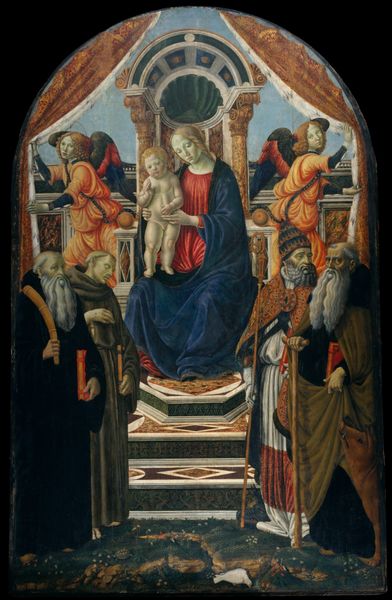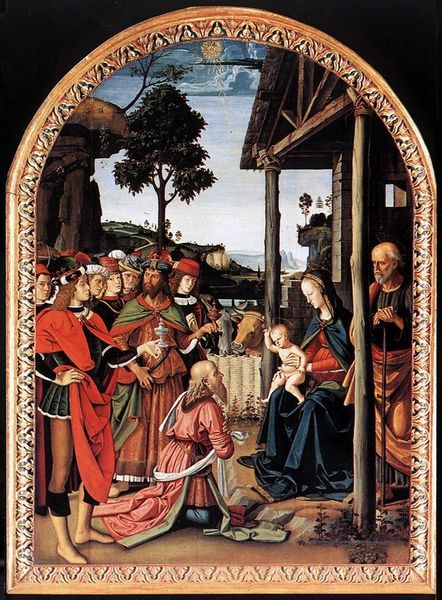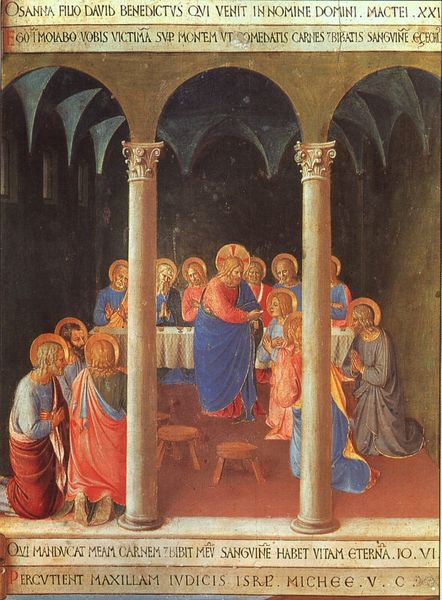
painting, oil-paint
#
allegory
#
painting
#
oil-paint
#
landscape
#
holy-places
#
perspective
#
figuration
#
oil painting
#
arch
#
christianity
#
history-painting
#
italian-renaissance
#
early-renaissance
#
virgin-mary
#
christ
Dimensions: 185 x 234 cm
Copyright: Public domain
Pietro Perugino’s painting, “Marriage of the Virgin”, now in the Musée des Beaux-Arts de Caen, presents us with an idealized image of a sacred event. Painted in Italy, sometime around 1500, Perugino’s composition reflects the cultural values of Renaissance society. The architecture is a testament to the period’s obsession with classical forms and mathematical perspective. But, beyond aesthetics, it speaks to the institutional power of the Church. The marriage of Mary, as depicted here, reinforces the Church’s teachings on marriage, family, and the role of women. Notice the figures in the foreground, their serene expressions and graceful poses. They embody the Renaissance ideal of humanism, emphasizing human potential and beauty. By imbuing the scene with a sense of harmony and balance, Perugino’s artwork reinforces the social structures of his time. To truly understand this artwork, we need to delve into the social and religious context of Renaissance Italy, examining theological texts, historical records, and other paintings of the time. Only then can we fully appreciate the complex interplay between art, society, and the institutions that shape them.
Comments
No comments
Be the first to comment and join the conversation on the ultimate creative platform.
